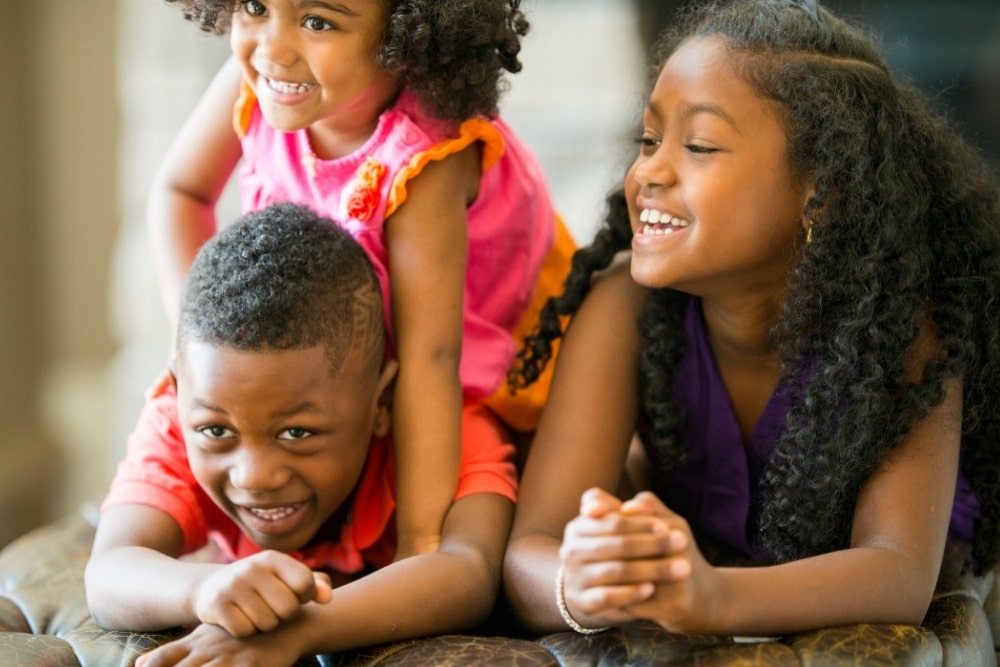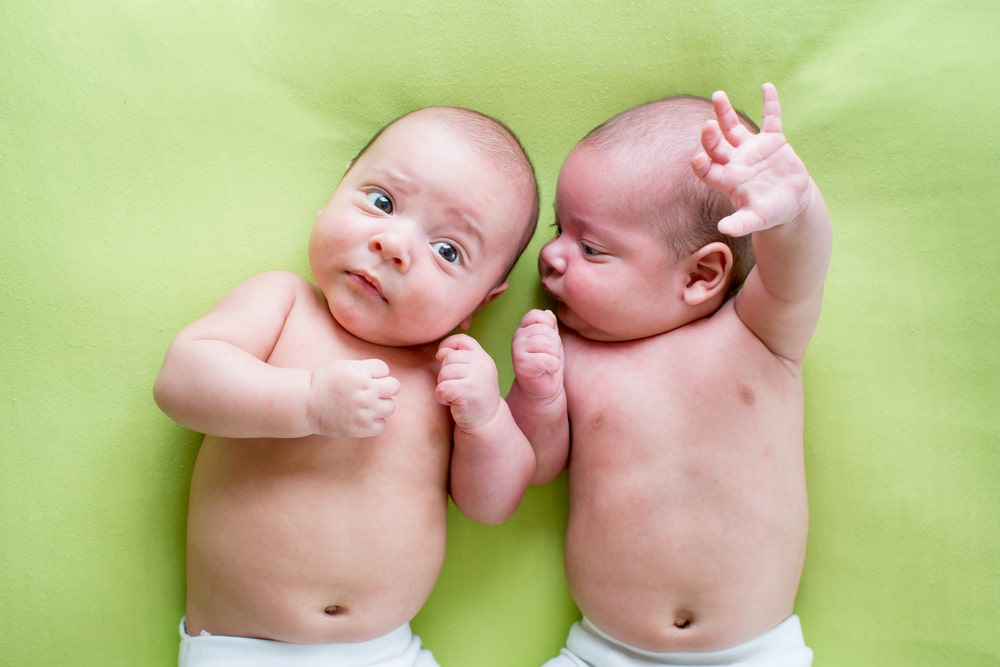We often hear all sorts of rumors about birth order: youngest children are the favorites, oldest children are the smartest, and middle children are the most unpredictable.
Here we have 75 fun facts about birth order, and you won’t believe how the order of our births can impact the rest of our lives.
In this article
75 Fun Facts About Birth Order
- The theory of birth order is the idea that your personality can be affected by birth order.
- Birth order theory was born of Alfred Adler’s research into birth order. This was the first research of its kind to suggest that your birth order could affect your personality.
- Adler’s research was also the basis of the concept of the inferiority complex. His research into birth order suggests that the position of your birth can affect the way that parents shape their children’s behaviors and personalities.
- Adler’s research states that rather than your personality being directly linked to the order of your birth, your birth order can affect the way that parents treat their children.
- Another psychologist who has worked on birth order theory, Kevin Leman, says that birth order has a definite effect on your personality.
- One of Leman’s theories is those youngest children are more open to new experiences, and more adventurous than their older siblings.
Oldest Children Birth Order Facts
- Older children may have a tendency to be a bit egotistical. As the first child, they are showered with love and attention from mom, dad, and the whole family, so they may have a tendency to believe that the world revolves around them.
- First Born Syndrome is another concept within the realm of birth order theory. This is when firstborns may feel unloved when their siblings come along, and this can cause negative behavior. They could become attention-seeking by acting out, and they could even become overly competitive with their siblings, to the point of even hurting them.
- Your firstborn may feel like they have to be first if they are often given things first. In order to ensure that this behavior doesn’t get out of control, teach your firstborn to take turns coming first. Consider offering their sibling first pick of the snacks, or let them pick the movie, and instill in your children the importance of taking turns.
- We all think our little ones are the best, but overpraising can be harmful to your child’s sense of self and confidence. If your child is constantly praised, they may feel like they have failed should they be unable to do something.
- Firstborn children tend to be perfectionists, and they are usually the highest-achieving and most successful of their siblings.
- Firstborns can sometimes be bossy and controlling, so it is important that this behavior is channeled properly.
- Firstborns are also highly motivated, reliable and cautious, and are often the planners of their groups.
- Firstborns are also natural leaders, as they are usually the responsible one of the group of siblings. Famous political figures such as Winston Churchill, Hillary Clinton, and Barack Obama are all firstborns. And a 2017 survey found that 43% of CEOs or high-ranking executives are firstborn children.
- Firstborns are also held to an extremely high standard, and play a huge role in the family. Firstborns were traditionally the heir to the throne, making them prominent societal figures.
- Older siblings are also a great means of support, as they sometimes take on the role of a third parent.
- Firstborns tend to be more intelligent than their siblings. Their IQ is often two points on average higher than their siblings.
- This is likely due to parents having more time to commit to their firstborn, without the additional responsibilities of other children.
- Firstborn children tend to do better in school.
- Firstborns tend to be extremely nurturing due to becoming additional parent figures to their younger siblings.
View in gallery
Second Born Birth Order Facts
- Second-born children are usually highly competitive, often trying to bypass their older siblings.
- Second-born children, who are also sometimes middle children, have a tendency to be very rebellious.
- Secondborns are the most likely to get in trouble at school or with the law than any other child in the birth order. This is the case in both the US and Europe.
- Second-born children also have a tendency to be more optimistic than their older siblings.
Middle Child Birth Order Facts
- Middle children tend to form lots of relationships outside of the family due to receiving less attention from their siblings. They are the social butterflies of the family.
- Middle children might feel that they are often left to get on with it. Older children are usually given additional responsibilities, while younger siblings have a tendency to be babies by their parents, so middle children may feel like they don’t receive equal love from their parents.
- Middle child syndrome is another aspect of birth order theory where middle children are usually left to their own devices and somewhat neglected due to their place in the birth order.
- Middle children might also feel like they are competing for love and attention.
- They can also take on the role of peacemaker in sibling fights, and they can see both sides of the story.
- If middle children feel they are neglected, they may have a hard time believing that future romantic partners are committed to them.
- They may feel less family-oriented.
- Middle children are strongly focused on their relationships and friendships.
- Middle children may struggle to find the place where they feel they belong, and they may find it difficult to set goals and achieve them.
- Middle children are the most adaptable of all siblings.
- They are also the most rebellious children.
- Middle children are also the most independent of all their siblings.
- Middle children’s personalities can be affected by their older siblings, and they might become rebellious or people pleasers. If older children are responsible, then the might child might become rebellious to gain attention, and this behavior might continue into adulthood.
- Famous middle-born children include Miley Cyrus, Jennifer Lopez, Katy Perry, and Chris Hemsworth.
- Middle children often move further away from family, due to feeling like they get caught between their siblings.
- This also helps them to forge their own sense of identity.
- They are also fiercely independent and may leave home before their elder siblings.
- Middle children are often caught between siblings and have strong resilience as well as excellent diplomacy and negotiation skills.
- They may also be more emotionally mature than their siblings.
View in gallery
Youngest Child Birth Order Facts
- Last-born child syndrome suggests that younger children tend to be more pampered and receive more attention than their younger siblings.
- Last-born child syndrome can be because parents tend to be older and wealthier when their youngest children are born. They may be relaxed as they are older, and as they have less to pay for they may have more disposable income.
- The youngest children are usually seen as the baby of the family, and as older siblings are usually mature and moving on, the youngest siblings will get more attention.
- Last-born children are usually attention seekers.
- Youngest children also may feel inferior to their elder siblings, due to feeling like they are in the shadow of their elder siblings’ success.
- Last-born children may have more freedom than their siblings, due to parents feeling more relaxed and less pressure to do things by the book.
- Last-born siblings are very charming but they can also be highly manipulative.
- Comparison can affect younger siblings’ sense of self. They may become annoyed at being referred to as ‘so and so’s’ younger brother or sister.
- They might have less initiative as they are less likely to be required to take charge.
- Despite being self-centered and attention-seeking, they can also be fun, relaxed, and outgoing.
- Last borns generally have thick skin and resilience, as they are often picked on by their siblings.
- They can become impatient easily, and are bored and sometimes spoiled.
- Famous youngest siblings include Cara Delevigne, Zooey Deschanel, Jennifer Lawrence, Willow Smith, and Julianne Hough.
- The youngest siblings are often most creative, due to a more relaxed parenting style.
- Parents are also likely to encourage younger siblings to follow more creative passions.
Only Child Birth Order Facts
- Only children are usually very mature, as they spend most of their time with older people.
- They may be used to being the center of attention, as they don’t have siblings to share attention with.
- They may be a little spoiled, as they usually have no one to compete with for attention.
- They can sometimes be manipulative in order to get their own way.
- They may feel pressure to meet their parents’ expectations, as they have no one else to do so.
- Only children are usually perfectionists.
- Only children can be sensitive, but they are also confident and natural leaders.
- Celebrity-only children include Robin Williams, Leonardo DiCaprio, and Daniel Radcliffe.
View in gallery
Twins Birth Order Facts
- Twins often feel they can’t be their own person, as they are constantly attached to their twin. They might be referred to as the girls, the boys, or the twins which can affect their sense of individuality.
- Another thing that might impact a twin’s sense of self is if they are the follower. One twin will always take on a leadership role, meaning the other twin is left behind.
- Twins may struggle to find the place they belong.
- Twins long for independence, so you may find your twins opting for completely separate hobbies. This may be even more pronounced if your twins are identical or of the same gender.
- The elder twin might be treated as though they are more mature.
- The first-born child complex can affect twins.
- Twins may experience feelings of neglect, as parents’ attention is often split between the two. This can lead to them competing as adults, or to them feeling a closer connection with one parent in particular.
- Twins tend to have more in common than siblings.
- Famous twins include Mary-Kate and Ashley Olsen, Dylan and Cole Sprouse and Hunter and Scarlett Johansson, as well as some twins of celebrities, such as Tristan and Sasha Hemsworth, Max and Emme Muniz, and Sir and Rumi Carter.
The Final Thought
While there is evidence to suggest that birth order can have some bearing on personality, it isn’t the be-all and end-all. Your little one’s personality will shine through, and as long as your nurture this, they’re bound to grow into a happy, healthy, and successful person.
And if you’re struggling with little tikes that just won’t stop bickering check out How To Stop Siblings From Fighting.






